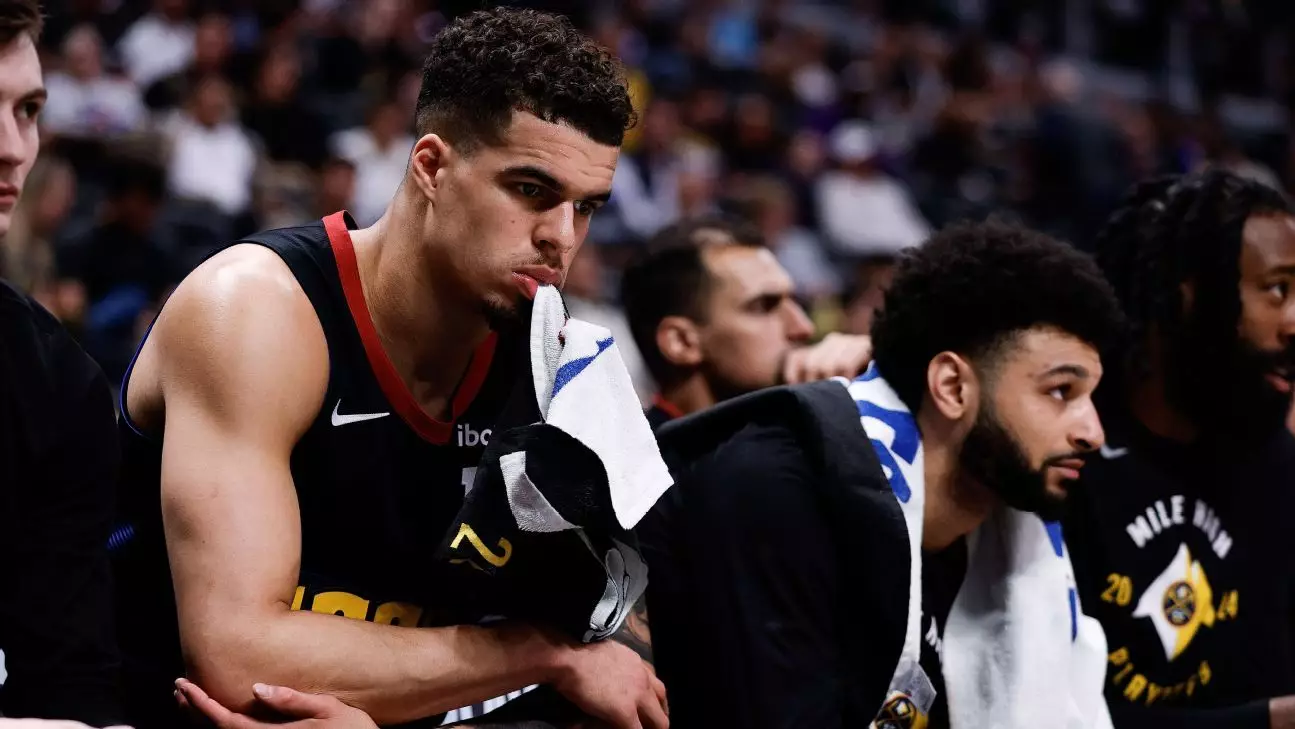In recent years, the rapid expansion of sports betting has transformed the landscape of professional athletics, but not for the better. Athletes like Michael Porter Jr. have voiced profound concerns about how gambling has tainted what was once a celebration of talent and effort. The core enjoyment and integrity of sports are increasingly compromised, overshadowed by the pursuit of monetary gain. This shift from appreciation of skill to financial manipulation erodes the very essence of competitive sports, turning games into wagering opportunities rather than displays of human achievement.
This disturbing trend isn’t just about corruption; it challenges the fundamental relationship between players, fans, and the game itself. When athletes are burdened with external pressures to influence game outcomes, the authenticity of sport becomes questionable. The danger lies in normalizing cheating for financial benefits, particularly when the line separating entertainment from exploitation becomes blurred. The widespread availability of online betting, combined with aggressive marketing, intensifies this problem, creating an environment where sports lose their innocence and become commodities for profit.
The Human Cost: Young Athletes Caught in the Crossfire
A particularly alarming aspect of this issue is its impact on younger athletes, exemplified by Jontay Porter’s recent ban for involvement in a gambling scheme. His admission of deliberately altering game performance to benefit betting interests highlights how deeply gambling issues can infiltrate sports culture. The fact that players might prioritize financial transactions over their competitive integrity demonstrates a broken system. For athletes from underprivileged backgrounds, the allure of quick money becomes even more potent, driven by socio-economic realities.
Michael Porter Jr.’s candid acknowledgment of the temptations faced by players from impoverished backgrounds sheds light on a critical problem: the cycle of vulnerability that leads to corrupt decisions. It’s a stark reminder that the issue transcends individual misconduct, reflecting larger systemic flaws. Athletes are often caught between societal pressures, personal financial struggles, and the lure of easy money, creating a perfect storm for unethical behavior. Unless profound preventative measures are taken, these issues will continue to escalate and threaten the reputation of sports.
Advanced Risks and Societal Implications
Beyond individual scandals, Porter’s mention of threats—including death threats and potential violence—highlights a darker side of the gambling epidemic. The emotional toll on athletes is mounting, as the stakes transcend respect and reputation, venturing into personal safety. The disturbing possibility of physical harm underscores the urgent need for stricter regulation and athlete protection measures.
Sporting authorities, lawmakers, and society at large must reconsider their approach to sports betting. Porter’s advocacy for restricting betting to in-person, regulated environments—such as Las Vegas—can serve as a starting point. Limiting online access could curtail some of the most destructive elements of modern gambling, reducing the influence of anonymous bettors who often act irresponsibly. However, these measures alone are insufficient if the cultural obsession with gambling persistently grows.
The widening influence of sports betting demands a critical reevaluation of how we engage with sports. It’s not just about safeguarding the integrity of competition; it’s about protecting the mental and physical well-being of athletes while preserving the genuine joy fans once found in the game. A deliberate, systemic shift is essential—one that prioritizes sportsmanship over profits and authentic competition over quick riches.


Leave a Reply